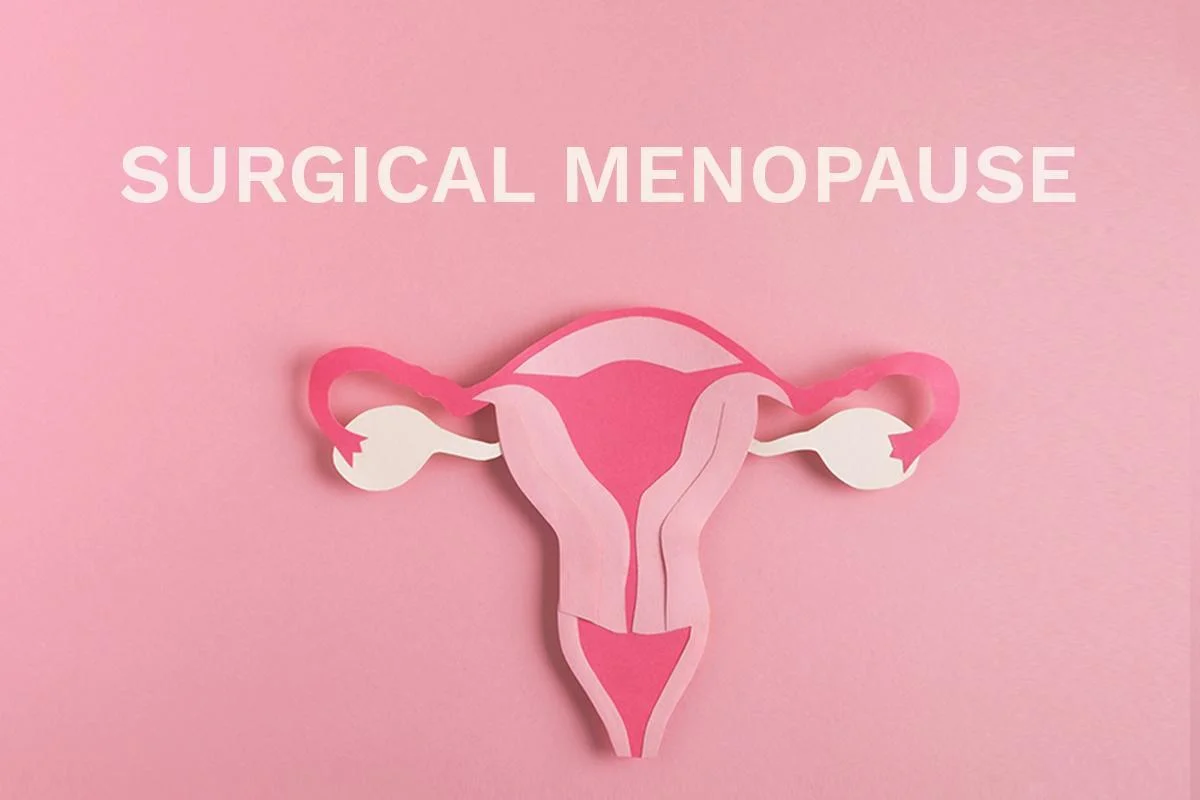Helen Kemp had a complicated gynecological history. When she was 41 years old, endometriosis, ovarian cysts and fibroids led to the surgical removal of her uterus, fallopian tubes and ovaries. She was completely unprepared for what she would go through after surgery, as she went into early menopause.
“Immediately after surgery, hot flashes kicked in, coupled with insomnia, anxiety and mood swings,” she recalled. “In the following weeks and months, I started to experience panic attacks and daily bouts of nausea and morning sickness.” Even now, nine years later, she said, “I can still be stopped in my tracks by a crushing fatigue, which seems to be a common legacy of going through a surgical menopause.”
In one word, Kemp describes her experience as “brutal.”
What is medically induced menopause?
Medically induced menopause refers to the end of menstrual periods as the result of severe damage to the ovaries from chemotherapy or medications or surgical menopause, which is when the ovaries are removed. Called an oophorectomy, the surgery is performed on women who are at high risk of, or are experiencing, ovarian, cervical and/or uterine cancer. Women experiencing fibroids, ovarian cysts or severe infection may also have the surgery.
“There are surgical, infectious, toxic, endocrine and metabolic causes that can result in induced menopause — any external cause of menopause outside of just aging,” explained Stephanie Faubion, M.D., medical director of the North American Menopause Society (NAMS) and director of the Mayo Clinic’s Center for Women’s Health.
In a soon-to-be-published study, Faubion said, NAMS found that about 13.1% of women experience early or premature menopause, which is menopause that occurs before age 40 from all causes, including removal of the ovaries.

2019 (Photo/Helen Kemp)
What happens when someone experiences medically induced menopause?
Surgical menopause and other types of medically induced menopause cause estrogen production to dramatically decrease. This dramatic decrease results in a range of symptoms that affect far more than just the reproductive system and has a more severe impact compared to natural menopause. The younger someone is when they enter medically induced menopause or surgical menopause, the more likely they are to experience serious consequences.
“There's an increased risk of osteoporosis, heart disease, dementia, Parkinson’s disease, sexual dysfunction, eye diseases and mental health issues, as well as early death,” Faubion said. Additionally, one review found that there are increased rates of stroke and pulmonary and colorectal cancer.
That’s why, Faubion said, ovary removal should be a last resort, mostly reserved for cases where the patient is at risk of or battling cancer.
“In the past, ovaries were just removed because doctors were surgically removing the uterus or something else, and took the ovaries when they didn't need to,” Faubion said, adding that they were also removed for unexplained pelvic pain or endometriosis.
Read more about endometriosis >>
That past is not that far behind, however. One 2021 population-based study looked at rates of surgical menopause in North Carolina between 2011 and 2014. There were 11,502 surgical menopause procedures for benign causes among reproductive-aged women. Ninety-five percent of those procedures occurred along with a hysterectomy. The study also found that procedure rates increased specifically among Black women over that four-year period — an important trend to watch when considering the health implications of ovary removal.
Another 2015 study found that 44% of women had their ovaries removed while they were having hysterectomies. Of those, almost one in four had nothing wrong with their ovaries. Nationally, about 600,000 hysterectomies are performed every year.
A lack of support for women experiencing surgical menopause symptoms
After Kemp went through surgical menopause, her mental health took a dangerous nosedive.
“My mental and emotional health took quite a battering. I was surprised at how rapidly my mood deteriorated after surgery,” she said. “I’d navigated depression since my mid-teens, but the depression after surgery felt different. It was deeper and darker, and followed by persistent episodes of suicidal ideation. I felt vulnerable, fragile and quite honestly, totally lost.”
Read “What Dr. Virginia Lindahl Wants You to Know About Suicide”
To make matters worse, Kemp thought she would recover within six to eight weeks, and felt uninformed by her surgeon about what to expect after medically induced menopause.
“There still appears to be a worrying lack of support for women in the acute postoperative period,” she said. “Having any organ removed is pretty major surgery, and yet many women are still leaving the hospital with no support or follow-up appointment whatsoever.”
Kemp’s experience led her to share her story and compile the narratives of other women who have gone through surgical menopause in “Surgical Menopause: Not Your Typical Menopause,” a book she edited. She wanted to provide a resource for other women preparing for surgical menopause or medically induced menopause.
“I don’t regret the surgery,” Kemp reflected. “I do regret not being better prepared, and I definitely regret not taking better care of my mental and emotional well-being both before and in the immediate aftermath of surgery.”
How to prepare for life after surgical menopause
If your doctor is recommending removal of your ovaries for a benign issue, consider getting multiple opinions to make sure it’s the right course of action for you.
“First, we should stop removing people's ovaries without having a very good reason,” Faubion said. “Second, if they are removed, women need to take hormone therapy, at least until the natural age of menopause.”
Kemp advised researching options regarding hormone therapy (also called hormone replacement therapy or HRT) well in advance of your procedure, so you can make an informed choice.
“On a purely practical note, it’s worth preparing a batch of meals for the freezer, and consider tidying away any potential trip hazards from around the house,” Kemp said. “Chances are, bending down is going to be problematic for a while, so ensure essential items are easy to reach at a suitable height.”
Most importantly, Kemp added, “Be kind to yourself as you heal, and give yourself as much time to recover as you possibly can. Life after a surgical menopause can be a baffling wilderness with an ever-shifting landscape.”
- What You Need to Know About Menopause - HealthyWomen ›
- When Cancer Leads to Early Menopause - HealthyWomen ›
- Hysterectomy - HealthyWomen ›
- How Does a Hysterectomy Affect Menopause? - HealthyWomen ›
- Surgical Menopause Hit Me Hard, but I'm Reconnecting With my ... ›







